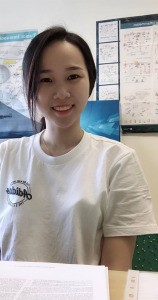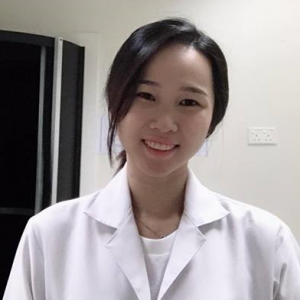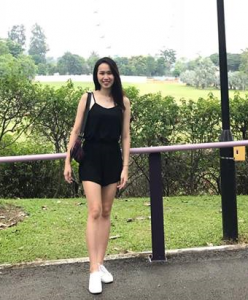[fusion_builder_container hundred_percent=”no” equal_height_columns=”no” menu_anchor=”” hide_on_mobile=”small-visibility,medium-visibility,large-visibility” class=”” id=”” background_color=”” background_image=”” background_position=”center center” background_repeat=”no-repeat” fade=”no” background_parallax=”none” parallax_speed=”0.3″ video_mp4=”” video_webm=”” video_ogv=”” video_url=”” video_aspect_ratio=”16:9″ video_loop=”yes” video_mute=”yes” overlay_color=”” overlay_opacity=”0.5″ video_preview_image=”” border_size=”” border_color=”” border_style=”solid” padding_top=”” padding_bottom=”” padding_left=”” padding_right=””][fusion_builder_row][fusion_builder_column type=”1_1″ layout=”1_1″ background_position=”left top” background_color=”” border_size=”” border_color=”” border_style=”solid” border_position=”all” spacing=”yes” background_image=”” background_repeat=”no-repeat” padding=”” margin_top=”0px” margin_bottom=”0px” class=”” id=”” animation_type=”” animation_speed=”0.3″ animation_direction=”left” hide_on_mobile=”small-visibility,medium-visibility,large-visibility” center_content=”no” last=”no” min_height=”” hover_type=”none” link=””][fusion_text] As a Biomedical Science student at the International Medical University (IMU), I was given the opportunity to complete my 9-week internship at A*Star, Institute of Molecular and Cell Biology (IMCB) in Singapore. I was placed under supervision of Dr Cheok Chit Fang, an Adjunct Assistant Professor, Department of Biochemistry, Yong Loo Lin School of Medicine, National University of Singapore (NUS) and also a Principal Investigator in p53 Joint Research Lab (JRL), A*STAR. Tumour suppressive mechanisms, genomic instability and cancer forms the basis of her interest and search for new therapeutic modalities for cancer. Her expertise in genomic stability has also led her to explore the molecular basis of age-related DNA damage. During my internship in Singapore, I undertook a wide range of tasks and activities. My principal task at the lab was to develop in vivo markers of replication stress. In this project, I learned to do genotyping to reveal the alleles an individual has inherited from their parents. I also have gained hands on experience with western blotting techniques and had the chance to learn RNA extraction, real time-PCR, RT-PCR as well as conversing the RNA to cDNA which is more stable. The internship saw me obtaining skills in handling fluorescent microscopes and perform quantification based on the intensity. In this lab, I have the opportunity to get involved in tissue culture techniques such as seeding, splitting the cells and also harvesting of the cells.  This internship has been a very memorable learning experience as it gave me the opportunity to gain some new skills and develop a passion for research in general. I learned a lot about myself, and more importantly, improved as a person. As an Biomedical Science undergraduate student, I did not have a lot of research experience earlier, so this internship experience helped me to better understand the research field and gain knowledge in genetics, immunology and cytochemistry. My internship at A*Star has significantly improved my knowledge of working in the field of research and the skills that I learnt will be useful throughout my career. It had provided me with my first experience of truly working in a laboratory on an ongoing project. I have also learnt how to plan ahead, work accurately, and obtain results. I was also exposed to several databases and resources used within the scientific community in gathering resources for research at this internship. Thus, my experience in this lab has even benefitted me in many of my science courses in the university. This experience has helped me to become a better researcher and more importantly a better student.
This internship has been a very memorable learning experience as it gave me the opportunity to gain some new skills and develop a passion for research in general. I learned a lot about myself, and more importantly, improved as a person. As an Biomedical Science undergraduate student, I did not have a lot of research experience earlier, so this internship experience helped me to better understand the research field and gain knowledge in genetics, immunology and cytochemistry. My internship at A*Star has significantly improved my knowledge of working in the field of research and the skills that I learnt will be useful throughout my career. It had provided me with my first experience of truly working in a laboratory on an ongoing project. I have also learnt how to plan ahead, work accurately, and obtain results. I was also exposed to several databases and resources used within the scientific community in gathering resources for research at this internship. Thus, my experience in this lab has even benefitted me in many of my science courses in the university. This experience has helped me to become a better researcher and more importantly a better student.  Most importantly, I experienced what might be called scientific failure at IMCB, when my work in the lab did not get the expected progress as planned. Personally, I think it is very important to learn to deal with scientific failure, also learning to react positively to any sort of failure is a skill useful in any career and life in general. I am also very grateful to my trainer as she constantly encourages me and gives me assurance which has really helped in boosting my self-confidence. Moreover, she is always ready to clear my doubts and lend a helping hand whenever I am in need.
Most importantly, I experienced what might be called scientific failure at IMCB, when my work in the lab did not get the expected progress as planned. Personally, I think it is very important to learn to deal with scientific failure, also learning to react positively to any sort of failure is a skill useful in any career and life in general. I am also very grateful to my trainer as she constantly encourages me and gives me assurance which has really helped in boosting my self-confidence. Moreover, she is always ready to clear my doubts and lend a helping hand whenever I am in need.  Taking advantage of my time in Singapore, I took the opportunity to visit and explore Singapore within this short stay: Marina South Pier, Garden by the Bay and Universal Studio. It was a good experience to have this chance to explore the country. In conclusion, I have achieved the objectives of my 9-week internship as well as the objectives of carrying out the project assigned to me in IMCB. I would like to thank IMU for giving me the opportunity to work in both the research and diagnostic fields. With this internship, I have gained insights and inspirations for my future career in science and evidence-based research. In my next internship, I hope to obtain an opportunity to carry out different kinds of experiments in relation to the modules that I have learnt in IMU, for example bioinformatics and haematology, so that I can further apply the knowledge and experience with more practical skills that can contribute to my career prospects in the future. [/fusion_text][fusion_table]
Taking advantage of my time in Singapore, I took the opportunity to visit and explore Singapore within this short stay: Marina South Pier, Garden by the Bay and Universal Studio. It was a good experience to have this chance to explore the country. In conclusion, I have achieved the objectives of my 9-week internship as well as the objectives of carrying out the project assigned to me in IMCB. I would like to thank IMU for giving me the opportunity to work in both the research and diagnostic fields. With this internship, I have gained insights and inspirations for my future career in science and evidence-based research. In my next internship, I hope to obtain an opportunity to carry out different kinds of experiments in relation to the modules that I have learnt in IMU, for example bioinformatics and haematology, so that I can further apply the knowledge and experience with more practical skills that can contribute to my career prospects in the future. [/fusion_text][fusion_table]
| About Institute of Molecular and Cell Biology |
|---|
| The Institute of Molecular and Cell Biology (IMCB) was launched to develop and support the biomedical R&D capabilities in Singapore. A*Star work in partnership with academic, healthcare and industry researchers, sharing intellectual, physical and capital resources to expand their ability to perform research. A*STAR partners with National University of Singapore, Nanyang Technological University, Singapore Cancer Science Institute of Singapore, Duke-NUS Graduate Medical School, and Tan Tock Seng Hospital. |
[/fusion_table][fusion_text]
Article and photos by: Tang Shi Qi (BM1/16)
[/fusion_text][/fusion_builder_column][/fusion_builder_row][/fusion_builder_container]

